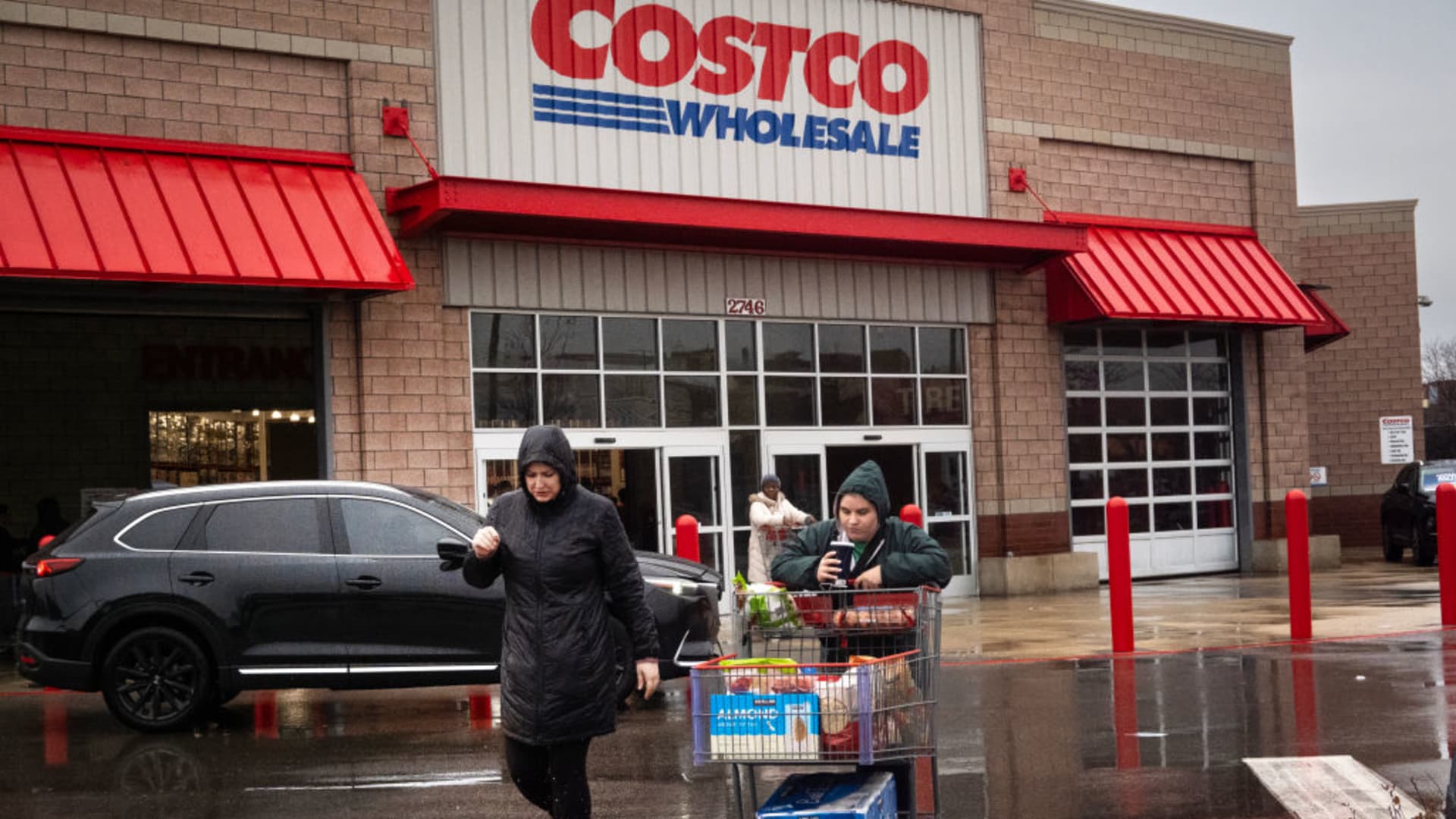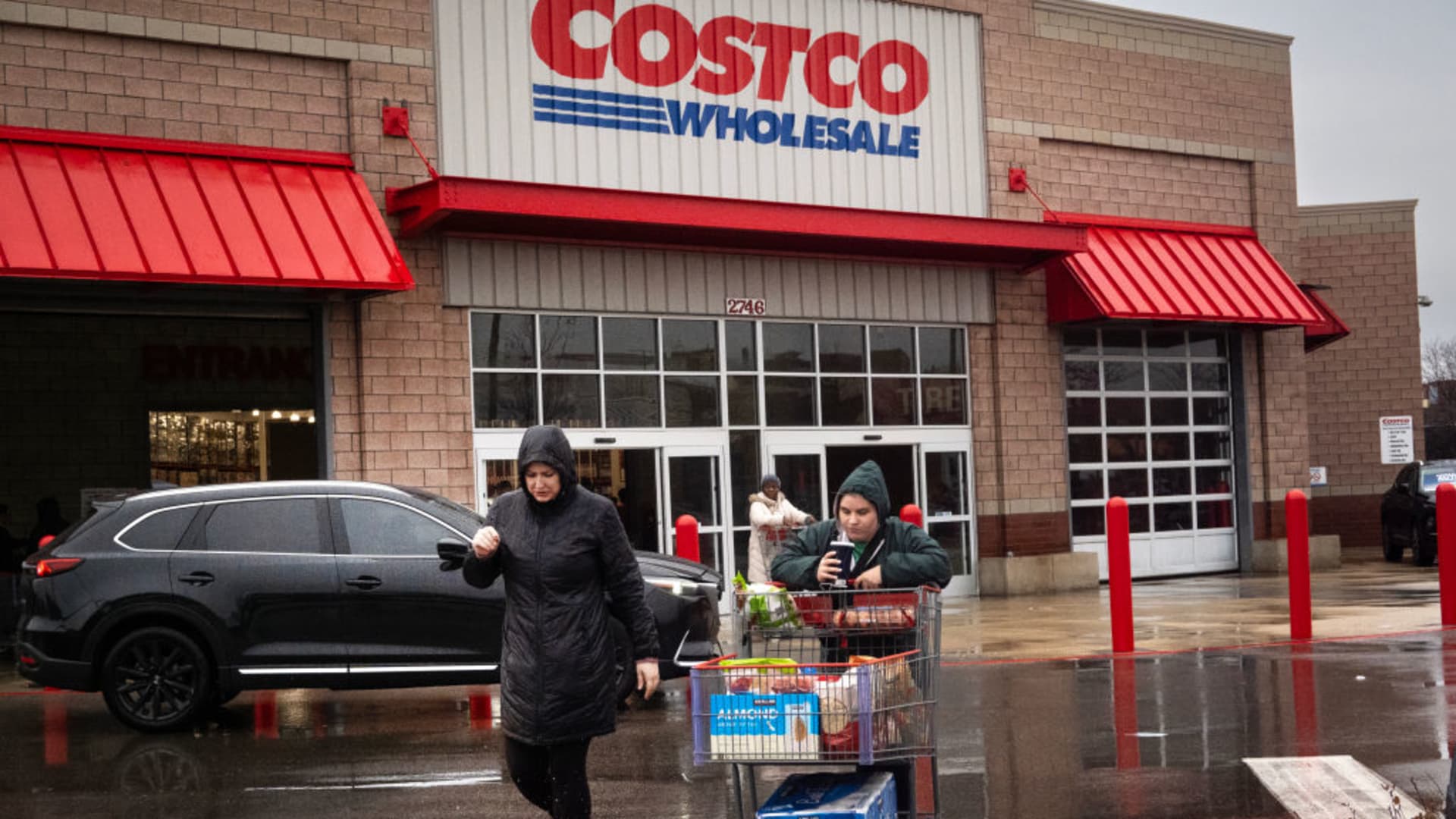Costco Wholesale Corporation (COST) has long been a standout in the retail sector, earning praise from financial experts like Jim Cramer, who frequently highlights the company as a “must-buy” investment. Cramer’s endorsement is rooted in Costco’s unique business model, strong financial performance, and strategic adaptability. This report explores the factors that make Costco a retail fortress, examining its membership-driven revenue model, financial resilience, and innovative strategies that set it apart from competitors.
The Membership Model: A Cornerstone of Success
Costco’s membership model is the bedrock of its business, providing a steady and predictable revenue stream. Unlike traditional retailers that rely solely on product sales, Costco generates a significant portion of its revenue from membership fees. This model not only ensures financial stability but also fosters customer loyalty, as members are incentivized to renew their memberships annually.
High Renewal Rates and Customer Loyalty
Costco’s membership renewal rates are a testament to its value proposition. In the U.S. and Canada, renewal rates consistently exceed 90%, indicating that members find substantial value in their memberships. This loyalty is driven by Costco’s ability to offer high-quality products at competitive prices, as well as exclusive perks and services that enhance the shopping experience.
Executive Membership Benefits
Costco’s Executive membership program further strengthens customer loyalty by offering enhanced benefits, such as 2% cash back on purchases. This program not only encourages members to upgrade but also increases their spending, as they seek to maximize the rewards they receive. Recently, Costco introduced a $10 monthly credit for Instacart orders for Executive members, a move that aligns with the growing demand for online grocery delivery services. This perk not only adds value for Executive members but also drives engagement with Costco’s e-commerce platform.
Financial Strength and Market Position
Costco’s financial performance consistently outshines industry averages, demonstrating its ability to navigate economic challenges and maintain profitability. The company’s strong earnings growth is a result of its efficient operations, effective inventory management, and strategic expansion.
Sales Growth and Expansion
Costco’s sales growth is driven by both same-store sales and strategic warehouse openings. The company continues to expand its footprint, targeting areas with strong consumer demand and favorable demographics. This expansion strategy not only attracts new members but also strengthens Costco’s market position, making it a formidable competitor in the retail landscape.
Commitment to Affordability
In an era of rising prices, Costco’s commitment to affordability sets it apart. Jim Cramer has praised Costco for its ability to maintain competitive pricing, even in the face of rising costs. This dedication to providing value to its members is a key driver of its success, attracting budget-conscious consumers who appreciate the savings they can achieve through bulk purchases.
Innovation and Adaptation: Key to Long-Term Success
Costco’s enduring success is not merely a result of its business model but also its willingness to innovate and adapt to changing consumer preferences. The company has consistently demonstrated an ability to stay ahead of market trends, ensuring it remains relevant and competitive.
E-Commerce Expansion
While Costco’s primary focus remains its brick-and-mortar warehouses, the company has made significant strides in expanding its e-commerce presence. Recognizing the growing importance of online shopping, Costco has invested in improving its website and mobile app, offering a wider range of products and services online. Partnerships with companies like Instacart have enabled Costco to offer same-day delivery options, catering to the needs of time-strapped consumers.
Kirkland Signature: A Private Label Powerhouse
Costco’s private label brand, Kirkland Signature, has become a powerful differentiator, offering high-quality products at competitive prices. Kirkland Signature products span a wide range of categories, from groceries and household goods to apparel and electronics. The brand has earned a reputation for quality and value, attracting loyal customers who actively seek out Kirkland Signature items when shopping at Costco.
Adapting to Market Trends
Costco’s ability to adapt to changing market trends is evident in its response to the evolving needs of its members. The company has expanded its offerings in areas such as organic foods, health and wellness products, and sustainable goods, catering to the growing demand for these items. By staying ahead of the curve and anticipating future trends, Costco ensures it remains a relevant and appealing destination for shoppers.
Challenges and Future Opportunities
Despite its strong position in the retail landscape, Costco faces challenges that could impact its future performance. Competition from other warehouse clubs and online retailers, as well as macroeconomic factors such as inflation and rising interest rates, could potentially affect consumer spending and Costco’s financial performance.
Addressing Competition
To maintain its competitive edge, Costco must continue to differentiate itself from its rivals. This could involve enhancing its membership benefits, expanding its product offerings, and improving the overall shopping experience. Investing in technology and innovation will also be crucial, enabling Costco to streamline its operations, personalize the shopping experience, and enhance its e-commerce capabilities.
Leveraging Data Analytics
Costco has the potential to leverage its vast amounts of customer data to gain deeper insights into consumer behavior and preferences. By analyzing this data, the company can optimize its product assortment, personalize marketing efforts, and improve its supply chain management. This data-driven approach can help Costco make more informed decisions and better cater to the needs of its members.
International Expansion
While Costco has already established a presence in several international markets, there is still significant potential for further expansion. Emerging markets, in particular, offer attractive growth opportunities for Costco, as rising incomes and a growing middle class create a favorable environment for its business model.
Conclusion
Jim Cramer’s endorsement of Costco is well-founded, as the company’s membership model, financial strength, and innovative strategies position it as a retail fortress. Costco’s ability to provide exceptional value to its members, coupled with its commitment to affordability and adaptability, ensures its enduring appeal. As the retail landscape continues to evolve, Costco’s focus on customer loyalty, strategic expansion, and innovation will be key to its long-term success. Investors who heed Cramer’s advice and hold onto Costco stock are likely to benefit from the company’s continued growth and resilience in the face of market challenges.












